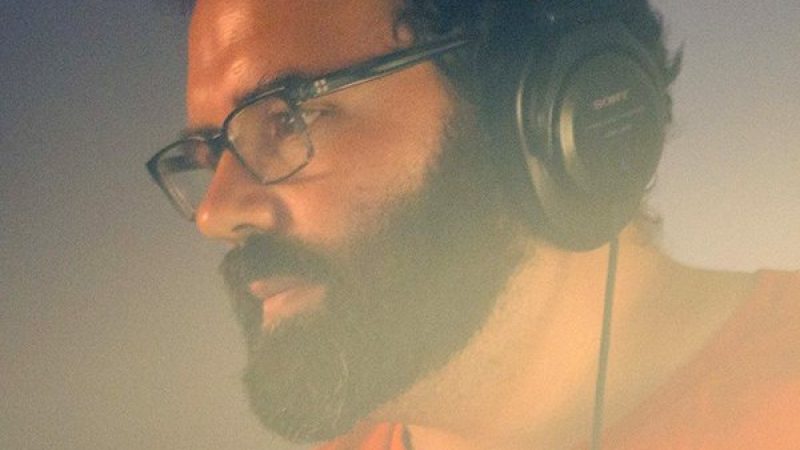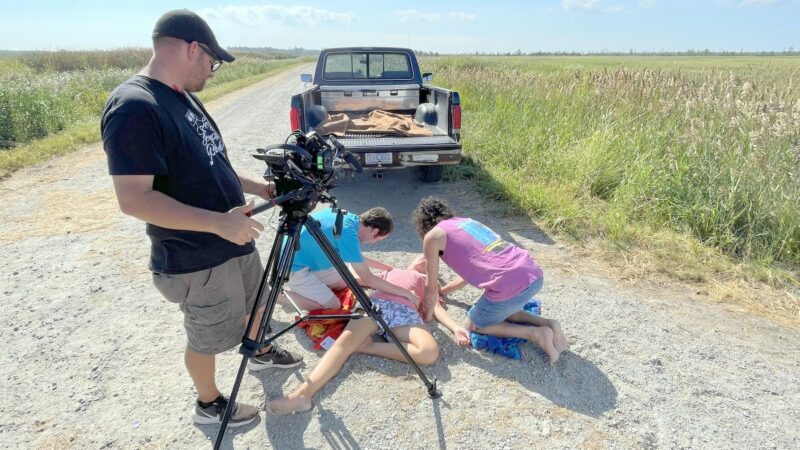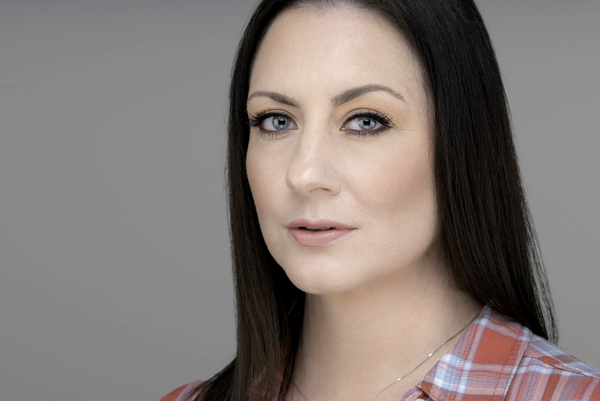
Jennifer Nangle grew up in a small town called Danvers, just north of Boston. That area is enriched with the arts. When she was nine or ten, she attended a showing of “The Sound of Music” that family friends who were younger than she was were singing and dancing on stage. Jennifer was so enthralled with the production and very curious about the process. When she told her mom she wanted to do that, they took advantage of every opportunity. Jennifer auditioned for everything she could (even an episode of “Unsolved Mysteries“), took voice lessons, classes of every kind.
Jennifer Nangle was an active member in her high school plays and local theater groups. She just knew she wanted to perform. When it came to college, she wanted to bypass that and go straight to New York to start auditioning. Her parents, the educators, disagreed, but she was able to study theater at Niagara University. There we had a speaker, actor Army Shultz, come in, lectured, and showed us what it was like to do Television. Jennifer knew that, that is what she wanted to do: be on camera! From there she moved to Los Angeles and since then, she has been auditioning, creating, performing, acting!
indieactivity: Did you study acting?
Jennifer: Yes. Any type of class I could take, I did. I studied and got my degree in theater, but before moving to Los Angeles, I knew I needed to do something different. I had always been extremely expressive and big in my actions because of musical theater, but film and television I knew were different. Something needed to change, so when my Uncle recommended a program in Los Angeles, The Laura Henry Acting Studio. Though I was terrified, I enrolled and stuck with it for two years (2 classes a week plus rehearsal and writing time/homework). It was tough and I hated every moment. Why? Because it was different than what I was used to, but it was incredibly valuable. Doing things out of your comfort zone and awful, but they are so beneficial and you learn HOW STRONG you really are.
indieactivity: What acting technique do you use?
Jennifer: I’m Meisner trained. Am I super strict Meisner? No. But I do use a lot of it consistently. I always figure out what my emotional prep is, where the beats are, what is my circumstance – WHY am I doing what I am doing? I do the prep work and once it comes time to performing, I put all my attention on the other actor and am just in the moment. Experience. Feel what I feel.
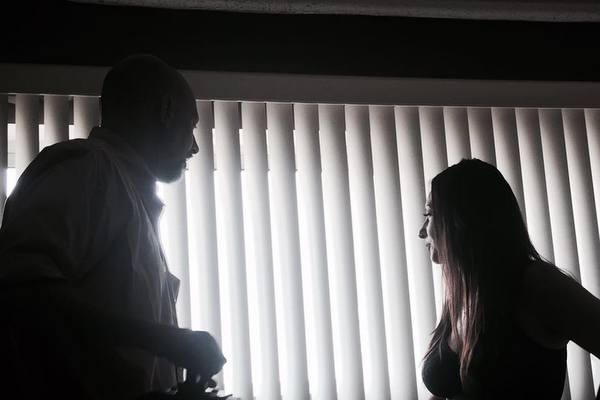
BTS with myself and my DP Paul Stephen Edwards from SLIT
indieactivity: You are experienced, how much work: creative, energy or focus do you put into your scenes?
Jennifer: Acting is not representing certain emotions and cues at specific times within the script. Acting is getting to a point where you are feeling what you are supposed to be representing. If you are “acting” an emotion, then you are not successfully acting. The paradox with the art of acting is the word itself. Acting is not what an actor wants to be doing with a role. The true art of acting is getting in the depths where you meet the character and give yourself to the character and feel what the character is feeling. You are fully connected with the story. You are not acting to please an audience.
indieactivity: You have worked on: Blue Balls, 2 Die For, Gore Theatre, Irrational Fear, Ugly Sweater Party, What’s good with Garrett Lee, 1 Minute Manias!, 10/31, 60 Seconds to Di3 and Shark Bites How has each show impacted your as an actor and career
Jennifer: I always learn something whether it be about myself, about production work, what a certain position does, and/or how other people work. Working with different people all the time is something I love, but not all personalities are the same. I like to show up prepared and work until the work is done. Many other people like to take breaks or joke in between takes.
I like to focus and stay in character until we move onto another scene. Sometimes you have to find a balance or see that others work differently than you and may need something from you before or after a scene is finished. A little give and take. I despise “divas” on set. I stay far away from them as much as possible. They are an energy sucker and it makes me so sad that this person is given an opportunity of a lifetime that someone else would kill for and they just take it for granted. No thanks! Luckily, I’ve only come across one or two, but I quickly realized it’s not worth my time.
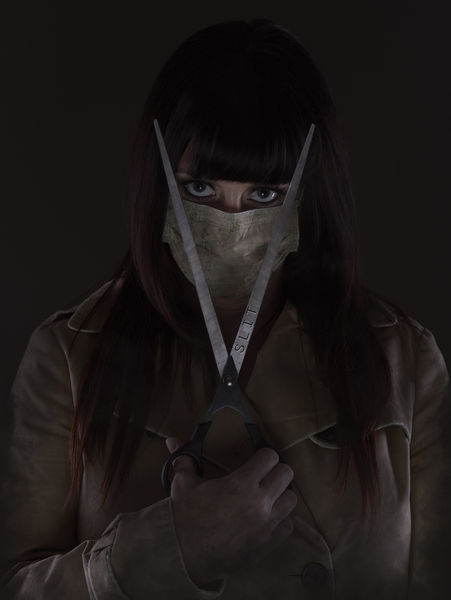
SLIT Poster
indieactivity: How does the work you do on one show, say “What’s good with Garrett Lee” compare to another, say “Blue Balls”?
Jennifer: Those two are completely and utterly different. “What’s Good with Garrett Lee” is a drink show where I went on and co-hosted. I went on and did a little improv, but was mostly myself. It was easy because Garrett and I work on my series, “Malvolia: the Queen of Screams” and have improved/work off each other prior. We flow very easily together. It was a very relaxed set with a small crew, so it was like hanging out with some of your really great friends making drinks (which is what I hope people experience when watching it)! “Blue Balls” was a scripted short film, so we weren’t improving. The director had certain marks he wanted me to hit and, as I enter my scene, I have a very quick emotional moment, so there was some prep involved.
indieactivity: Let’s take “Malvolia: The Queen of Screams”, for example, how did you prepare for such a role: the cast, the physicality and the demands
Jennifer: I created Malvolia, so because of all the research and choices in wardrobe I made, it has enhanced the character to where I can slip in and out of her very easily. Depending if I wrote the script or not is how I prepare. If I wrote the script, I already know it (I have a slight photographic memory, so it’s in my brain) and know how I want it presented. When someone else writes the script, I have to go over it many times so it’s in my body. When we shoot, we just go for it. We may do a rehearsal, but we will often shoot the rehearsal because you never know what amazing things may happen!
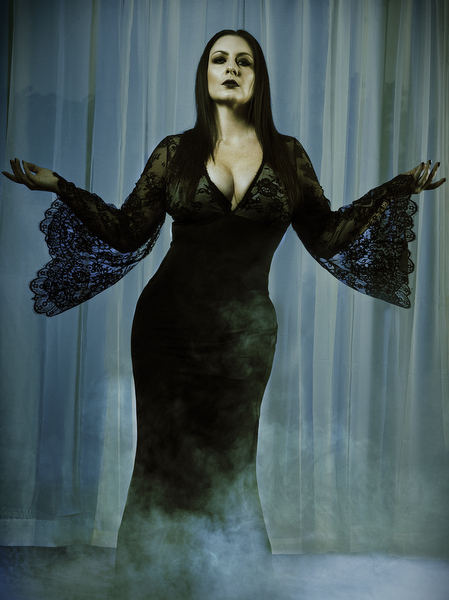
Malvolia Promo Pic
indieactivity: When you shot “gore theatre” how do you create that character from a script into a person?
Jennifer: I find a calm quiet and simple environment and relieve myself of all inner dialogue and anxiety. I read the script from a neutral standpoint and take in the story as a whole. Then I dive into the details. Time, place, and relations between characters. Answer the questions that I can from the context then list the questions I don’t know the answer too.
Then I take some deep breaths and start sense streaming. Sense streaming is noticing all the sounds, sights, feelings, etc., that is happening around you. You take in all that you can that is going around you and you come to a place where you are one with the moment. The character starts to enter. Traits, qualities, reasons start to present themselves. The questions that you didn’t know the answer to start to answer themselves. No judgments can be made. And the character starts to develop.
indieactivity: How do you stay fresh on set?
Jennifer: That was a tough one because we were filming in Idylwild, CA in May. It was freezing cold, but I had to look like I was having a fun time. I was thinking a lot about hot temperature places! I personally don’t like to joke around very much in between takes so I can focus and just remember all the prep work I’ve done prior to walking on set. I like to stay in the moment, reset, and then go again.
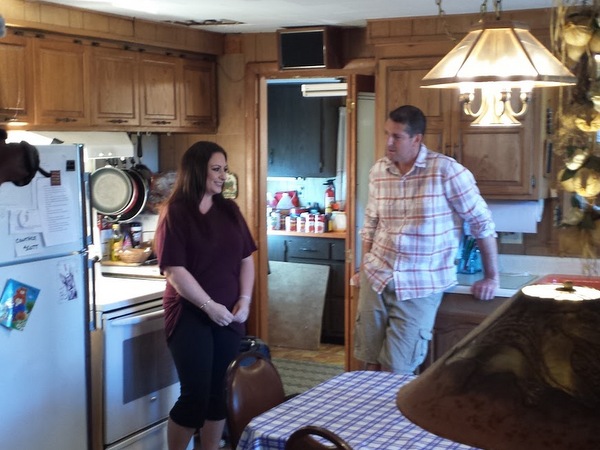
BTS with Actor Tom McCarthy from Irrational Fear
indieactivity: Describe a memorable character you played?
Jennifer: One of my favorite characters to play was MaKenna on the sci-fi comedy webseries “GUIDES”. If anyone watched that show very closely, I was extremely creative with my wardrobe. Because it was a low budget web series, we had a lot of creative in put. My alien colors were red and black so everything I wore was red or black or both! When I was MaKenna, my hair was straight with the red extension highlights.
When I was acting as another human, my hair always had the red streaks, but it was different than being just down – I always tried to make my appearance different (I even used clip in bangs). When I was MaKenna, I wore my “M” necklace. When I was another human, my necklace was different. No one really noticed these minor things, but for me, they made all the difference in the world with helping me stay in the scene.
indieactivity: Explain one creative choice you took on set?
Jennifer: This actually happened during a performance. When I home from college one summer, a group of friends and I decided to put on a play called “You’re a Good Man Charlie Brown!” and were going to donate all the proceeds to charity. I played Lucy. We raised the money for the rights and asked a local church if we could put on the show in the basement. We rehearsed and rehearsed and sang our hearts out! Opening night we had a very eager young audience member that would try to talk to us, the peanut characters performing.
I could tell he wanted to be apart of the show so badly that at one point I asked him to call for a crew member to remove some scenery for me (that was the easiest way we could figure out how to do it – have the crew be apart of the show). He screamed for that crew member and loved every second of it. It was a wonderful experience that summer and some days I wish I could go back to that amazing time!
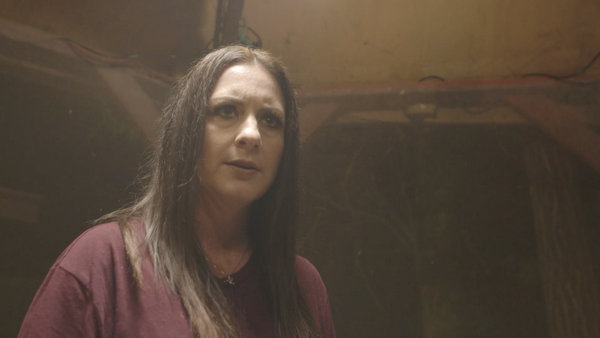
Jennifer Nangle as Kelly in Irrational Fear
indieactivity: What do you want most from a director?
Jennifer: Someone who is prepared with a clear idea of what the spine of the story is, BUT also is open to collaboration. I love working with directors who are open to actors ideas and creativity.
indieactivity: What actors do you long to work with?
Jennifer: Meryl Streep, Robert De Niro, Robert Downey Jr., Tom Hardy, & Alicia Vikander.
indieactivity: Why?
Jennifer: All of these actors are extremely committed in their scenes. They are realistic and work off of their scene partners. They own the characters they play. I always want to be challenged by my scene partner.
indieactivity: What advice would you give to actors?
Jennifer: Follow your path and follow your heart. Not everyone is going to understand or believe in your career choice. I had an aunt once that asked me, “When are you going to leave this Hollywood thing behind and come home and settle down?” That has never been my journey. Stay true to who you are and work so hard that everyone knows your name.
indieactivity: Briefly write about your career?
Jennifer: From stage to camera work, what I have discovered is I am a stronger woman. This career path is not for the weak. Rejection is a daily occurrence and even though I have my low times, I couldn’t see myself doing anything else. Self producing gave me the courage to push myself and want better. I want to play strong women characters that have real problems and bring them to life. I will keep expanding and challenging myself in any way possible. I will keep fighting the good fight as an actress and a filmmaker.
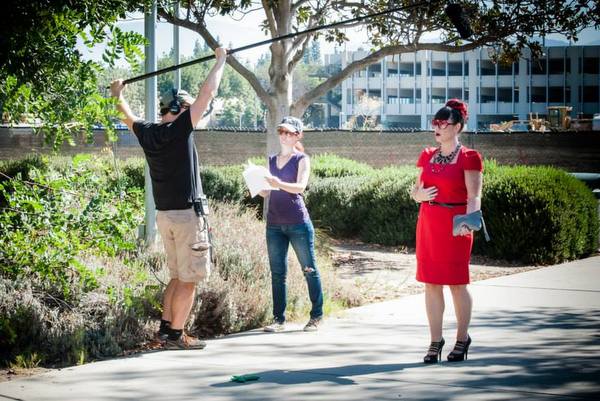
BTS with Jennifer Nangle as MaKenna on GUIDES
In Conversation with Michael Oblowitz Director of Confidential Informant
Confidential Informant stars Mel Gibson, Dominic Purcell, and Kate Bosworth

